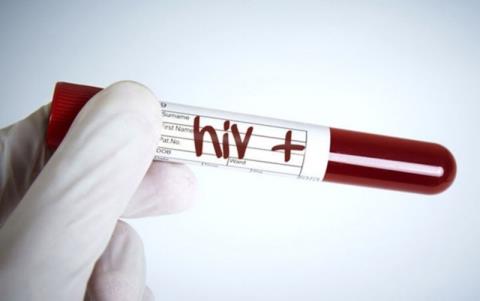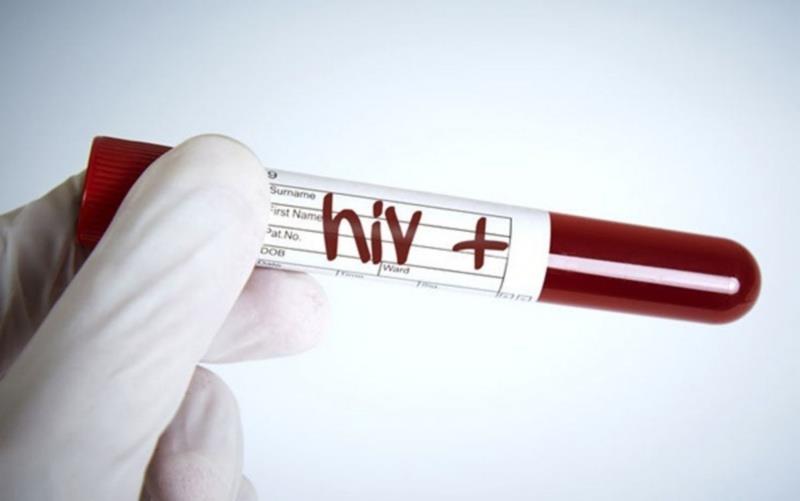How long does the HIV window period last? Symptoms during the window period

HIV is still considered a major challenge to world health today. The disease causes many serious complications and a very high mortality rate. HIV is divided into several stages, including the window period. The following article will help you answer the question: How long does the HIV window period last?
Although HIV is a dangerous disease and there is no specific drug, but with early detection and proper treatment, the patient's health will improve in a positive direction. However, detecting the disease at the window stage is relatively difficult. So how long does the HIV window period last? What symptoms does it have? Please read the article below to find the answer.
Learn about HIV disease
What is HIV?
HIV is a human immunodeficiency syndrome caused by a virus called HIV. When entering the body, the virus will attack cells of the immune system such as macrophages, T-lymphocytes, B-lymphocytes, etc. As a result, the immune system is impaired and creates favorable conditions for microorganisms. Other pests enter and cause disease. Therefore, HIV is also considered an opportunistic disease.
The HIV virus enters the body and causes illness
Common routes of HIV infection
Currently, people infected with HIV are considered a source of disease transmission to those around them. The disease is transmitted through 3 common ways below:
- Blood-borne transmission: This is the most common route of transmission. Blood and blood products containing the HIV virus are sources of infection. It is caused by sharing needles or medical equipment contaminated with the blood of an HIV-infected person, sharing razors, tattoo needles, acupuncture or contact with an open wound of an HIV-infected person.
- Sexually Transmitted: Having unprotected sex with someone with HIV puts you at high risk of contracting the disease.
- Mother-to-child transmission: HIV enters the child's body through the placenta, vaginal fluids, amniotic fluid, and breast milk. However, there are also cases where the mother is infected with HIV but the baby is born healthy and negative for the virus.
How long does the HIV window period last?
The HIV window period is the time from the start of exposure to the HIV virus (the new virus that enters the body) until the body makes enough antibodies and an HIV test can detect it . out the HIV virus. How long the window period lasts depends on the body and the immune system of each person. Typically, the window period lasts from 23 to 90 days:
- For antigen testing, antibodies can detect the HIV virus 18 to 90 days after infection.
- For tests to find viral DNA and RNA, the virus is detected earlier, about 10-30 days.
On average, the HIV window period lasts about 3 weeks. Up to now, there is no method that can detect the HIV virus immediately after being exposed to the pathogen. It takes time for the body to develop antibodies against the virus, and it takes time for the virus to multiply enough to be detected by blood tests. However, infected people at the window stage can still infect others around them.
How long the HIV window period lasts depends on the individual patient
Common symptoms in the window period
During the early stages of HIV infection, the bacteria multiply rapidly in the body and this is considered the acute stage of infection. At this time, the immune system will be activated to produce antibodies, which are proteins that help fight the invasion of the virus.
For the first few weeks, the patient will usually feel no symptoms. After 1-2 months, the first symptoms of the disease may appear, but patients often do not realize they have HIV. The reason is that these symptoms are atypical and patients are easily confused with other common diseases.
The initial symptoms experienced by HIV-infected patients can be similar to those of the flu, including:
- Fever, chills.
- Fatigue, loss of appetite.
- Swollen lymph nodes.
- Rash.
- Headache, body aches.
How long the symptoms in the window period last and how much they manifest depends on the location of each patient. In some cases, the patient does not have any symptoms during this period. However, the viral load in the blood is still very high and there is a high chance of infecting others.
Symptoms will go away after a few months when the patient enters the chronic stage. This phase usually lasts many years and is associated with the patient's treatment.
What to do when HIV exposure is suspected
When you suspect that you have been exposed to the HIV virus and exposed, you need to immediately go to the nearest medical center for timely treatment and diagnostic tests. Initial results may be negative, but do you still need to schedule an appointment to be tested again to see if you have HIV?
Within the first 72 hours of suspecting that you are exposed to the virus, you should actively learn and ask your healthcare provider for guidance on how to take HIV post-exposure prophylaxis (PEP ) . This helps prevent the growth of the virus if you become infected.
Prophylactic efficacy is best when applied within 24 hours of suspected HIV exposure. This method can help you reduce your chances of getting a virus. However, it should be noted that this is not a treatment and will not be effective in all cases.
While waiting for the time to get accurate diagnosis results, you need to proactively take measures to prevent infection to those around you. You need to avoid sex with other people, do not share needles, razors, toothbrushes… Avoid contact with open wounds with others. At the same time, you need to keep a strong mentality, ready to face all possible risks.
 Testing is required for diagnosis when HIV infection is suspected
Testing is required for diagnosis when HIV infection is suspected
Why should HIV be treated early?
Medical studies have shown that the earlier HIV treatment is started, the more effective the treatment will be. Once you have been confirmed as HIV positive , you need to immediately go to a medical facility for advice and treatment as soon as possible. When the immune system is weakened and is no longer able to fight infections, treatment is difficult.
Some benefits of early treatment:
- Inhibits the growth of the virus, avoiding the rapid multiplication of the virus.
- Reduce the risk of opportunistic infections.
- Reduce the possibility of infecting people around because the virus concentration has been controlled.
- Extend the life of patients, improve the quality of life for people living with HIV.
In order to be able to detect the disease early and promptly treat it, when realizing that the body has risk factors for being exposed to the virus such as injecting drugs, getting a tattoo, having unprotected sex or having a blood transfusion. and direct contact with blood products, you need to go to reputable facilities to perform specific tests to diagnose the disease.
Through the above article, we hope to help you answer the question of how long the HIV window period lasts as well as how to handle it when you suspect you have HIV. Always follow the recommended HIV prevention measures to protect yourself and those around you. Thank you for following SignsSymptomsList's article.